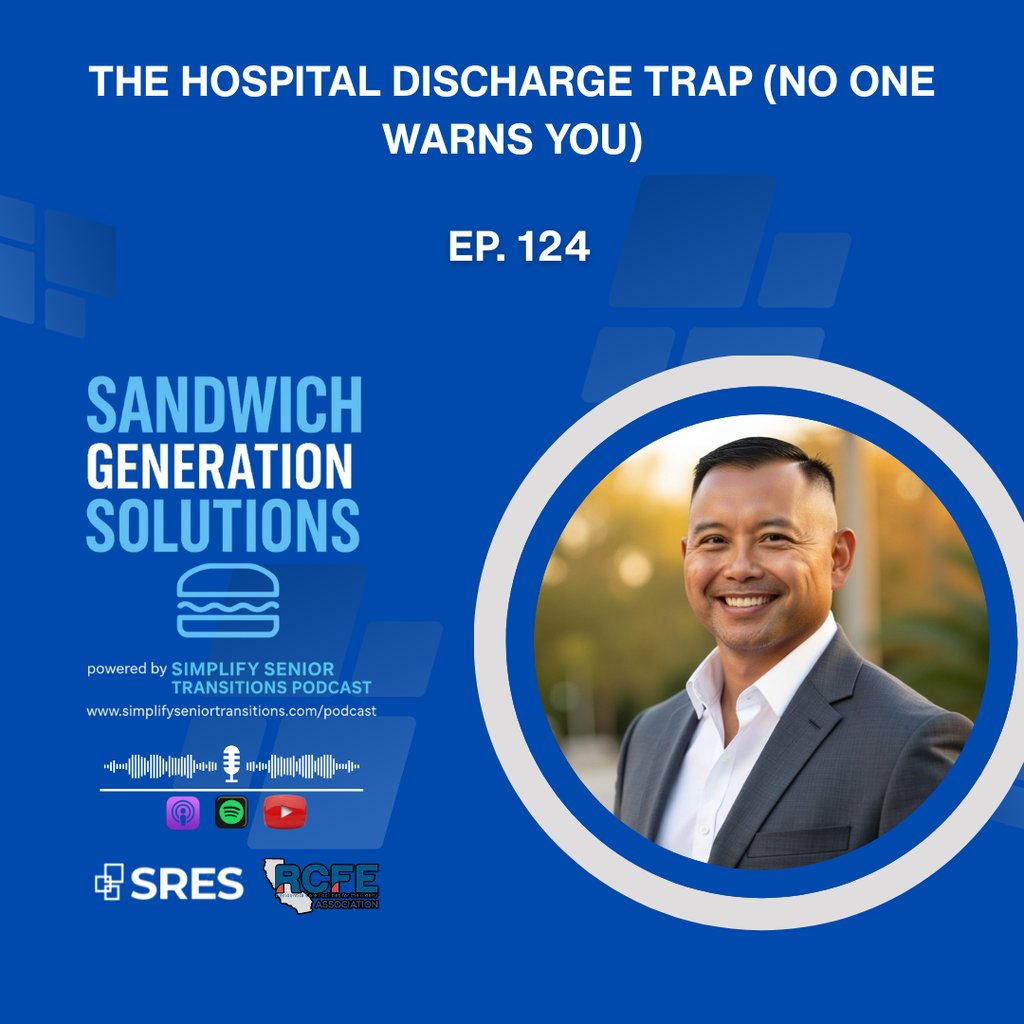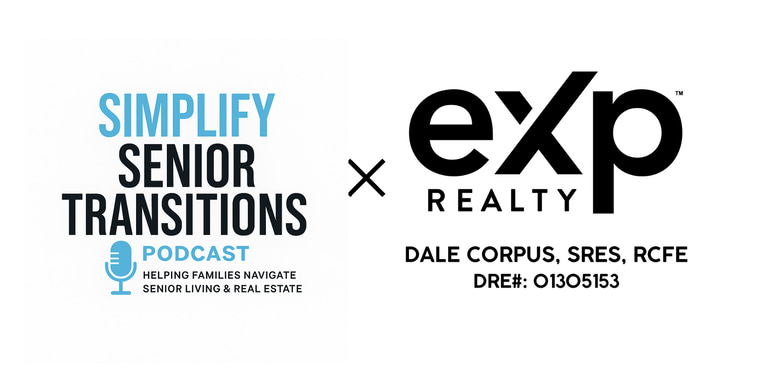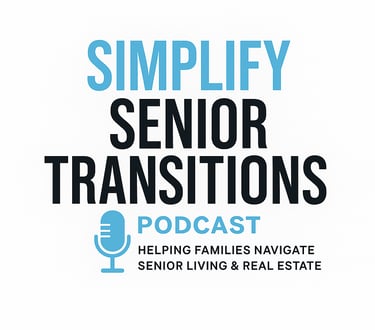The Hidden Danger of Hospital Discharge Every Bay Area Caregiver Must Know
Why Seniors Fall Through the Cracks After Discharge — And How Families Can Protect Them
Dale Corpus
11/19/20253 min read
Bay Area Caregivers: The Hidden Danger of Hospital Discharge You Must Prepare For
If you are caring for an aging parent in the San Francisco Bay Area—whether you’re juggling responsibilities in Contra Costa, commuting through Santa Clara, or managing logistics in Alameda or Napa—you know the stress is real. And when a crisis hits, like an unexpected hospital stay after a fall or illness, the anxiety level skyrockets.
We often assume that once our loved one is medically stable, the hospital will hand us a complete roadmap for recovery. Unfortunately, as senior transition specialist and real estate expert Dale Corpus explains in this episode of the Simplify Senior Transitions Podcast, that assumption is a myth. You are often left standing on the edge of what he calls the dangerous discharge cliff.
This is the part no one warns families about. Hospital staff must legally discharge a patient once they meet certain medical criteria, but their job is to get the patient medically stable, not long-term safe. Discharge is often just paperwork, leaving families unprepared for the chaotic transition home.
Here's what you'll learn in this episode
This episode of Sandwich Generation Solutions breaks down the hidden gaps in the hospital discharge process and provides the practical strategies you need to stabilize your parent and relieve family stress. We dive into:
Why hospital discharge is risky for seniors, leading to preventable readmissions.
The crucial questions every family must ask before leaving the hospital.
How to build a real care plan when in-home care isn’t enough.
How professional guidance can help when safety issues reveal the need for senior living, requiring quick decisions about downsizing and selling the senior’s home.
The Dangerous Discharge Cliff: It’s Not Your Fault
Let me tell you the kind of story that happens every day across Bay Area hospitals. A woman named Renee from Hayward called Dale after her mom was discharged following a fall. The nurse handed Renee a stack of papers and wheeled her mom out. There was no care plan, no medication review, and no talk about home safety. Within 48 hours, her mom fell again and broke her hip. Renee’s heartbroken realization? “I didn't know what I didn't know.”
This is the reality: hospital staff are not required to provide a full recovery plan. They assume the family will figure it out, but adult children are often juggling work, their own kids, exhaustion, overwhelm, and panic—making it impossible to create a coherent care plan in the moment.
Studies show that 20% of seniors return to the hospital within 30 days, often due to preventable issues.
Why Transitions Fail (And How to Manage Emotional Stress)
Sources detail three major reasons seniors struggle after discharge:
Medical Confusion: Hospital medications are often different from home meds. Families frequently don't realize which medications were stopped, changed, or shouldn't be taken together.
No Home Safety Assessment: No one checks if the home environment is discharge-ready. Are there trip hazards? Are stairs safe? Do grab bars exist? Many homes are not suitable without modifications.
No Support Plan: The hospital doesn't ask who’s helping with bathing, meals, managing symptoms, or transportation. No roadmap means overwhelm.
Your 7-Point Roadmap Before Leaving the Hospital
You must become proactive instead of reactive. Here are seven crucial things to request or ask for before discharge:
What exactly is the follow-up plan?
What medications changed?
What does my parent need help with?
Is home health appropriate?
Is my parent safe returning home?
Can we get Durable Medical Equipment (DME)?
Who is the discharge planner or case manager?
Facing the Big Transition: Care Options, Downsizing, and Home Sales
Hospital discharge often reveals that your parent needs significantly more help than expected—or cannot safely return home at all. This is where a senior transition specialist steps in. Dale helps families decide between in-home care, assisted living, or memory care.
He also helps navigate the complex decisions around funding care and managing the home. Sometimes, selling the home “as is” is the best strategy to fund necessary care and avoid overwhelming prep tasks.
You don't have to face this cliff alone. You can prevent falls, avoid crisis, and protect your parent's dignity by preparing now.
Schedule a FREE consultation and learn more about navigating these complex choices at www.simplifyseniortransitions.com.
You can also listen to the full episode on Spotify, Apple Podcasts, or YouTube. For quick questions, DM Dale on Instagram @soldbydale.
P.S. Have a story to share? Email dale.corpus@exprealty.com.
Watch The Podcast Here



Transitions Made Simple
Helping seniors transition with ease and peace.
📍 Real Estate Services – San Francisco Bay Area
🔁 National Senior Transition Referral Network
🌎 Strategic Advisory & Professional Intensives – Available Nationwide via Zoom
📞 GET IN TOUCH
📬 STAY INFORMED
© 2026. All rights reserved.
🔎 LEARN MORE



